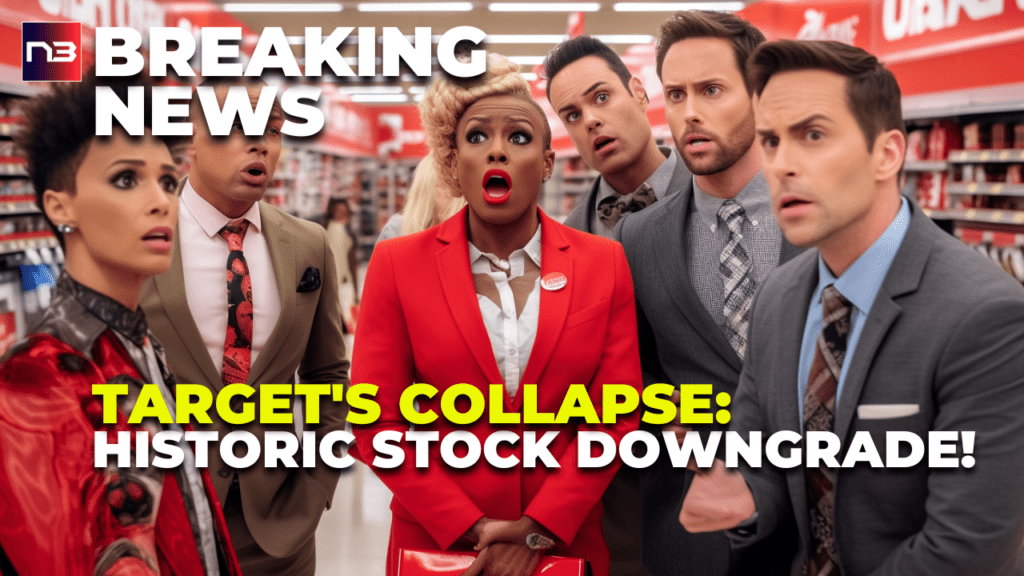Target, a retail juggernaut, is now teetering on the edge of a financial precipice. As its stock experiences an historic downgrade, we ask: has the controversial Pride Month stance ignited this financial wildfire? Stay with us as we dissect this fascinating tale of consumer influence and corporate missteps.
In what appears to be a seismic shift in consumer sentiment, Target is experiencing an unexpected downturn following the controversial decision to sell LGBTQ-themed gear in honor of Pride Month.


This move sparked an immediate outcry from conservative shoppers, leading to a massive boycott reminiscent of the ongoing Bud Light protests. These actions, propelled by the power of conservative consumers, have resulted in Target’s longest losing streak in 23 years.


JP Morgan has responded by downgrading Target’s stock outlook, predicting a new price target of $144, a significant drop from its previous $182. This prediction comes at a crucial time when Americans are preparing for the summer shopping season. Christopher Horvers, a JP Morgan analyst, has expressed concerns over a weakening consumer base and a shift in spending habits, which he believes could result in further losses for Target.


In a surprising move, Target executives initially doubled down on their decision to stock Pride merchandise but eventually chose to remove the items from their stores however this has been disputed. This backtrack has only stoked the flames, with left-wing protestors accusing the retailer of turning its back on the LGBTQ community. This controversy has reportedly resulted in a staggering loss of $12.5 billion in market valuation for the company in just ten days.


Balancing inclusivity while avoiding the ire of conservative activists is proving to be a tightrope walk for corporations. The backlash against Target has now extended to its competitor, Kohl’s, which has also been targeted by protestors for its line of LGBTQ-themed clothing.


This saga underscores the formidable ability of conservative activists to mobilize against brands they perceive as embracing ‘woke’ politics. It serves as a stark reminder for corporations that consumer sentiment is not a force to be trifled with, and those who ignore it do so at their peril.


In an era where corporations are increasingly engaged in social activism, Target’s saga is a wake-up call, a testament to the power of consumer sentiment. Only time will tell whether the retail giant will be able to recover from this unprecedented loss or if it will become a cautionary tale for other corporations flirting with ‘woke’ politics.



